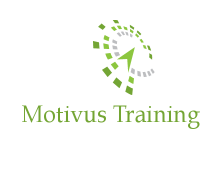I am no tech geek!
I just like to express my views on a range of things that interest me. And that's the first reason why I suggest you should set up some Google Alerts... to help you regularly find some content that interests you, so that you can express yourself about it on any of your preferred social media platforms... Twitter, LinkedIn, Facebook, Google+ etc
For examples, studies show that 43% of tweets are “babbleâ€, 38% is conversational, 4% is spam, 6% is self-promotional, and only 9% is “moderately interesting. Using Alerts will help you be interesting, especially if you add your comment or opinion on the material that you find in Alerts. If you're interesting, it's also easier to stand out from the other 91%!
Other reasons why I suggest it's worth setting up some Google Alerts are any combination of these.
I want to forward the issues that I care about. For example, I want a greener world, urgently. That includes seeing business be more sustainable. So I have an Alert on “Green Work. Each week, I get current stories sent to me about what business is doing to make business greener. I comment about it via Twitter, or simply promote the fact to my tiny following.
Another reason is that I know the adage “Content is Kingâ€, or “Content Rulesâ€. Developing content, even in the simple form of having a view on current news and other issues, is the stuff of effective social media, for business, hobbies, movements, politics or pleasure.
Then of course there is the process of marketing the organisations to which I consult, or helping the people I train and coach. Marketing and sales these days is content driven. Content is what pulls people to you, and is the core of the so-called “know, like, trust†process of modern “in-bound marketing†or lead generation.  There’s much more to the process of building your own content, but getting material from the wide world via Google Alerts is one part of the process.
From observing myself and others closely on social media, I also know that the size of the following you build is directly proportional to how many times you say have something to say, and the quality of what you say (relevance, topicality, humour, and / or personality etc). For example, on Twitter, providing you don’t over-Tweet and annoy people, the number of Followers you get depends on how much you tweet. Some gurus suggest you tweet at least 10 times a day, but not more than every half hour. From my experience, this is good advice, assuming you want to build a following so you can effectively do any combination of the things I mention above... express yourself, forward your concerns, build market share and sales leads, or just be interesting!.
So here’s the very simple process of how to set up and use Google Alerts.
- You need either a g-mail address or a Google Account (go to www.google.com, or www.gmail.com)
- On the Home page of Google, or your gmail, go to "More" at the top of the page
- Then go to "Even More"
- This will take you to the Google Products page
- You'll see "Alerts"
- Alerts will take you to "Alerts Setup Page"
- In the box "Search Query", type one single alert you want, such as "Nursing“, or “Green Work, or “Cats†or other topics relevant to your industry, passions, etc. (Use the same process to set up separate Alerts for each topic.)
- Adjust the drop down boxes under that to suit your preferences, such as daily/weekly emails. For the moment, I suggest you stick with the various default answers shown in the boxes, such as “Only the best resultsâ€. You can also change these options at any time in the future.
- Conclude by pressing "Create Alert"
- Go back to the now empty "Search Query" box to enter further new Alerts on other topics relevant and interesting to you.
- At any point, you can see your whole list of “Alerts†by clicking on the box “Manage Your Alertsâ€. You can use this to change the parameters of any particular Alert, such as whether you want an email on a daily or weekly basis.
- You can delete an Alert by checking the box on the “Manage Your Alerts†Table, and then clicking the “Delete†button that show at the bottom of the list of your Alerts.
I get most of my Alert emails on a weekly basis, so I don’t clog my inbound emails. But I may go back to the weekly email a few times to follow up on different stories that I have not yet checked out.
If you are the kind of person who reads hard copy newspapers, you may find over time that this process tends to reduce your hard copy consumption. For myself, I find it’s just not fun to read something when I can’t also instantly share my views or comments it, or just simply promote an article that I think deserves a very slightly bigger audience among my very small following.
Have fun... and careful of addiction!
